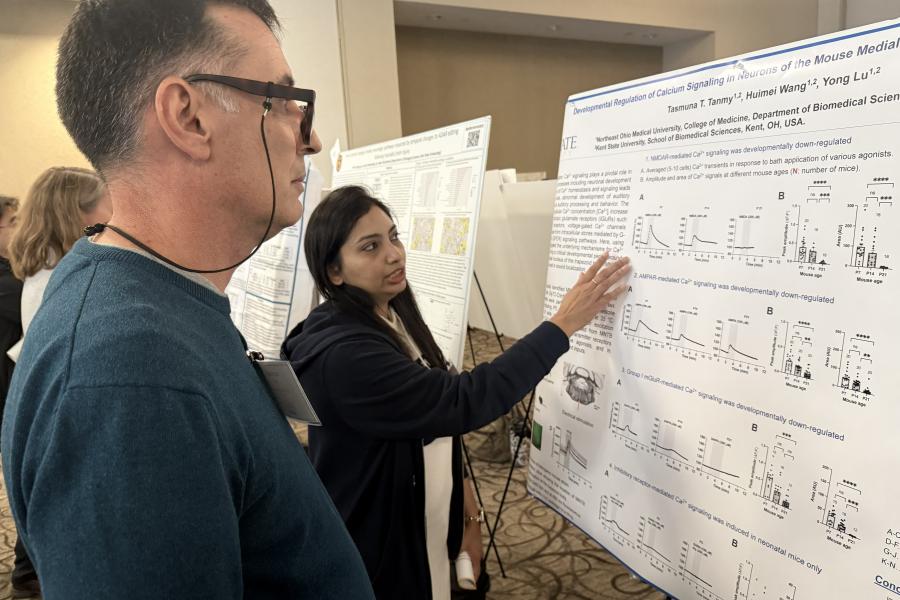Brain Health Research Institute

Great Minds: Brain Health Symposium Brings Together Researchers and Students
Kent State University's Brain Health Research Institute recently held its annual Neuroscience Symposium 2025, Conference and Research Exchange. The two-day event, which took place at the Kent State University Hotel & Conference Center, highlighted the research of Kent State faculty and students.

Neuroscience Student Working to Uncover Role of PMAT Protein in Fear and Anxiety Disorders
Aliyah Ross, a senior neuroscience student in the Honors College at Kent State University, is diving headfirst into the world of research and examining how a specific protein may play a role in fear expression and anxiety disorders. Ross is from Bolivar, Ohio and came to Kent State becaus…BHRI News - December 2024
Brain Health Research InstituteBHRI Director Discusses Plans for the Next Five Years at the RED Townhall Kent State University’s Division of Research and Economic Development recently held its quarterly Townhall meeting on September 25, 2024. One of the main topics of discussion at the Tow…
Kent State’s Research on Display at Annual Neuroscience Symposium
The breadth of ongoing research by Kent State University’s Brain Health Research Institute members will be displayed when the institute hosts its annual Neuroscience Symposium 2024 Nov. 7-8 at the Kent State University Hotel and Conference Center.

Fun and Games: Neurodiversity Challenge Is Set for DI Hub
Anyone who thinks they have a great idea for a new game is encouraged to take part in “Let’s Make the Rules: A Game Creation Experience” – an event that seeks to bring together neurodiverse and neurotypical individuals.

I PROMISE Students Study Brain Health
Kent State’s Brain Health Research Institute recently welcomed 94 fourth-grade students from the I PROMISE School in Akron, Ohio, for a day of activities aimed at sparking their interest in science and technology.

Mad Skills: Workshop Offers Training on State-of-the-Art Equipment
Kent State University’s Brain Health Research Institute sponsored a Research Skills Workshop, to allow students and faculty to learn how to operate the state-of-the-art technology located in the Integrated Sciences Building.

Where Brain and Machine Meet
Kent State University's Brain Health Research Institute hosted its 11th Annual Neuroscience Symposium on Oct. 26-27, where speakers and presenters from academia and private industry discussed the field of brain-machine interface.

Laser-Focused: New Microscope to Benefit Kent State Researchers
Kent State University researchers are beginning to use a new high-tech microscope that will allow them to view the structure of cell tissue on a more intense level.

Laser-Focused: New Microscope to Benefit Kent State Researchers
Kent State University researchers are beginning to use a new high-tech microscope that will allow them to view the structure of cell tissue on a more intense level.